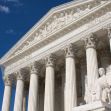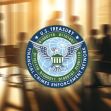In December, Trump vetoed a $740.5 billion defense spending bill after it passed Congress. His objections did not relate to the disgorgement provisions included regarding the SEC’s work. On December 28, 2020, the House overrode Trump’s veto.
On January 1, the Senate voted to override the president’s veto as well and passed the 60th annual National Defense Authorization Act (NDAA). This Act enables the SEC to broaden its authority to get “ill-gotten gains” from fraud-based securities law violations.
The new Act codifies the SEC’s authority to seek disgorgement in federal court, tolls the statute of limitations while defendants are outside the US, and doubles the statute of limitations to ten years in cases where the wrongdoing is “scienter-based.” The SEC could bar, suspend, or seek cease-and-desist orders to halt wrongdoing, even as late as ten years after the freshest violation.
Every year through the court system, the SEC receives orders through the federal court requiring violators to “disgorge” billions of dollars obtained illegally through fraud and other crimes. In 2017, the Supreme Court ruled in the Kokesh case that the disgorgement activity of the SEC was limited to a five-year statute of limitations. After the Kokesh case, former SEC Chairman Jay Clayton said he was, “troubled by the substantial amount of losses” the SEC would encounter as a result of the five-year limitation.
In Kokesh, a defendant had perpetrated a fraud lasting twenty years. The Court held that the SEC’s use of disgorgement was not equitable but penal and so was subject to the five-year statute of limitations for penalties. In a footnote to the decision, the Court questioned whether the SEC could obtain a disgorgement in federal court at all since the federal securities laws did not specifically provide for such a remedy.
Congress drafted a bill to address this issue, creating the “Securities Fraud Enforcement and Investor Compensation Act of 2019,” which expressly gave authority for disgorgement to be sought. The bill never made it out of committee. In November 2019, a similar bill was drafted, but again, never made it out of committee.
In a more recent ruling, Liu (2020), the Supreme Court allowed disgorgement but limited it. They required disgorgement proceedings to have the intent to benefit the victims of the alleged fraud and limited the amounts to be obtained to nothing exceeding the net profits of the wrongdoer. Testifying in the Liu case, Clayton estimated that since Kokesh, “more than $1 billion in ill-gotten gains has been unavailable for possible distribution to harmed investors.”
The Exchange Act allows the SEC to seek any relief necessary or appropriate on the investors’ behalf. The SEC has sought disgorgement as “equitable relief” in federal court. With Kokesh and Liu, the Supreme Court has gradually diminished the SEC’s ability to seek disgorgement, but the NDAA has expanded its powers in a crucial way.
The new Act will create a vast change for the SEC. They can request higher amounts of disgorgement, and litigation processes will become more aggressive as a result. The extended limitations period may allow for longer investigations, and it will certainly extend cases where the party to be enforced upon is outside the United States. Further, the extended period applies not only to future cases but to cases already pending.
Additionally, because the new statute of limitations only applies to scienter-based claims, the SEC will have additional incentive to pursue charges based on older alleged misconduct. The SEC could expand the scope of current investigations to include older, previously off-limits conduct.
The increase in the funds the SEC gains could encourage more whistleblowers to come forward, too. Whistleblowers are remunerated based upon the amount of money the SEC collects.
2021 could lead to a record amount of disgorgement recovered by the SEC.






